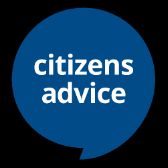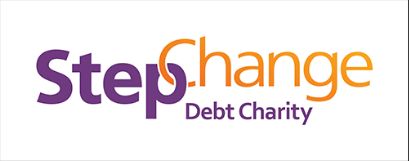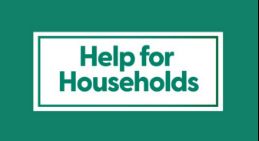Cost of living
Latest advice and guidance
Introduction
The cost of things like food, gas, electricity and petrol are going up very fast.
Many people are worried about whether they can afford basic essentials.
If you are in this situation and struggling to cope, the most important thing to realise is that you are not alone.
There are many organisations that can provide practical advice and support.
The best advice is always to get help as early as you can.
Key points
-
1
If you are struggling financially, you are not alone.
-
2
It is best to ask for help sooner rather than later as this can help stop things getting worse.
-
3
There are many organisations you can get in touch with that will provide help and support.
-
4
Do not be worried if you struggle with maths - almost half of adults in the UK do.
Important: Avoiding Scams
Citizens Advice have found that millions more people are being targeted by scams this year as money pressures get worse for more people. They can be very difficult to spot.
For more help on how to spot and deal with this and other scams see Citizen's Advice.
Contents
Choose from a range of useful advice and links in the sections below.
You can come back to the contents back clicking the 'Back to contents' link at the end of each section.
1. Getting started: useful websites
When looking for help online it is very important to stick to information from organisations that you know are genuine and reliable.
We recommend starting with the following websites.
-

The Money Helper service provides free, confidential and impartial help tailored to individual needs.
Visit site → -

A free and impartial service that gives advice on a very wide range of matters, including money challenges but also family problems, immigration, housing, consumer rights and more.
Visit site → -

Step Change are debt experts who offer free, flexible debt advice and practical help and support for as long as is needed.
Visit site → -

This is a Government website that has details of all the Government support schemes available. It also has links to discounts and offers from businesses.
Visit site →
2. Check your benefits entitlement
It is a good idea to check that you are getting all the benefits you are entitled to. You can do this with your local Jobcentre Plus.
Sometimes your eligibility can change if your health status or family situation changes.
Using a benefits calculator
You can use EntitledTo's benefits calculator. You will need information about savings, income, pension, childcare payments and any existing benefits (for you and your partner).
If you are under the age of 18 you can use the calculator produced by Policy in Practice.
If you are not a British or Irish citizen and you are responsible for children under 18 you can use the Support for Migrant Families tool. You will need information on your immigration status.
Finding out more about different benefits
If you need to find out more about any particular benefit, then you can look this up on the Department for Work & Pensions website or Citizens Advice.
3. Maximising your income
Employment
Moving into work: It is important to remember that you are very likely to be better off working and that Jobcentre Plus and other employability and advice services are ready to help you manage the transition. You can get help with transport, childcare and other costs.
Wages and deductions: If you are in a paid job, check that you are being paid at least the minimum wage using the Government's minimum wage calculator. You can also check whether any deductions that your employer makes from your wages are correct by using this Government guide.
Employer support: If you are employed, your employer may offer help that you do not know about. Check if your employer offers shopping discounts, support with childcare, low-interest loans, hardship funds or employee assistance programmes.
Help from your local council
Help with essentials: Check your local council's website and see if they can help with essentials such as food, fuel bills or household goods. Each council runs a different scheme. You can find out how to contact your local council on the Government's website.
Council tax: It is sometimes possible to apply for a reduction in your Council Tax if you are on a low income and do not have this already. Start on the Government's website.
4. Government's Cost of Living Payments
In response to the rising cost of living, the Government announced a series of payments that most people in receipt of a benefit to help with low income will be eligible for. The first set of Cost of Living payments were announced and paid in 2022. In Nov 2022, further Cost of Living payments were announced for the same cohort – to be paid over the course of the 2023/4 financial year.
Cost of Living Payment: Around eight million people on means-tested benefits should have received Cost of Living Payments in July 2022 and November 2022. A further three payments are expected to be made in 2023/4 totalling £900. The first of these should have been received in April/May of this year. The second payment is due to be paid in October or November and the final payment in spring 2024. If you are eligible for this you don’t need to do anything, as you will get the payments automatically. If you are receiving tax credits but not an income-related benefit then the timescale is different. To find out more click here.
Disability Cost of Living Payment: People on disability benefits will have received a one-off payment to help with extra costs in September 2022. A further £150 payment was due to be paid in June/July of this year. This is in addition to the Cost of Living Payment above. To find out more click here.
Pensioner help: There will also be an extra £150/£300 for pensioner households paid as an increase to their winter fuel payment to be paid from mid-November 2023, but you need to be the right age to qualify for this. You will be sent a letter in October or November telling you how much Winter Fuel Payment you’ll get if you are eligible. You can find out more by clicking here.
Warm Home Discount Scheme: You could get £150 off your electricity bill for winter 2023-2024. The one-off discount will be applied automatically to your energy bill between early Oct 2023 and March 2024. If you might be eligible, you’ll get a letter by early Jan 2024, if you don’t get a letter but think you might be eligible contact the Warm Home Discount Scheme before 29 Feb 2024. You are eligible if you either get the Guarantee Credit element of Pension Credit or you are on a low income and have high energy costs. To find out more, click here.
Cold Weather Payment: You may be entitled to a cold weather payment of £25 for each 7day period of very cold weather between 1 November and 31 March. If you are receiving certain benefits or support for Mortgage Interest, you will be paid automatically. You can find out more about this payment here.
Household Support Fund: You may be eligible for extra financial support from your local council to help with the cost of essentials like groceries, toiletries, warm clothes, and energy bills. The government has invested over £2 billion into the fund since October 2021, and more than 26 million awards have been made to vulnerable households. If you are in need, you can contact your council to find out what support is available in your area. You can find more information about this fund here.
5. Debt advice and support
Assessing your situation
No matter how serious the situation, there is always something that can be done. There are many guides available to help you start taking a look at your own situation:
- Citizens Advice: Help with Debt
- National Debtline: Help with Debt
- Business Debtline: Click here if you are self-employed or run a small business
- MoneyHelp: Dealing with Debt
- Step Change: Click on Get Started
Seeking individual advice
While not everyone will need it, there are many free, one-to-one debt advice or counselling services across the UK that will help you find a way out if you have problem debt.
The easiest way to find a debt adviser is to use the debt advice locator on the MoneyHelper website.
Breathing space
Speaking to a debt adviser can also help you access a government scheme called Breathing Space, which is designed to give you time (60 days) to receive advice and find a solution to sort out your problems. You can find out more about breathing space in this factsheet from the National Debtline.
"I have never seen a case of debt that can’t be solved. No matter how bad it seems, there is light at the end of the tunnel."
Martin Lewis, the Money Saving Expert
6. Energy bills
Government discounts
You could get £150 off your electricity bill for winter 2023-2024 through the Warm Home Discount Scheme. The one-off discount will be applied automatically to your energy bill between early Oct 2023 and March 2024. If you might be eligible, you’ll get a letter by early Jan 2024, if you don’t get a letter but think you might be eligible contact the Warm Home Discount Scheme before 29 Feb 2024. You are eligible if you either get the Guarantee Credit element of Pension Credit or you are on a low income and have high energy costs. To find out more, here.
Other sources of support
- Help to pay your gas or electricity bill from Money Helper.
- A guide from Citizens Advice contains information on what to do if you are struggling to pay your energy bills. They also have a guide to Grants and benefits to help you pay your energy bills.
- Ofgem, the energy regulator, has clear information about your rights to help with energy bills. Their rules mean that suppliers must offer payment plans you can afford and you can apply for ‘emergency credit’ if you use a prepay meter and cannot top up.
- The Charis website has links to many of the grants offered by energy companies and also has other grants that you can apply for.
- In certain circumstances you may be able to get help from the Water Sure Scheme. Find out more on the Turn2Us website.
- You may be eligible for a cheaper deal on your broadband or data, called a Social Tariff. Find out more on the Ofcom website.
- If you are disabled, have young children, have mental health problems or classed as "vulnerable" in a range of other ways, you should get on the Priority Services Register for extra support.
The Priority Services Register
This is a free service to help people in vulnerable situations, for example if you are disabled, have young children or communication difficulties. It means you get priority support, such as heating and cooking facilities if you are cut off the supply.
Each energy supplier or network keeps its own register, so you need to call your gas or electricity supplier to get on it. The Ofgem website explains what you need to do to get registered.
7. Money and your mental wellbeing
It is very common for money problems to affect your mental wellbeing. There is a lot of help and guidance out there to help you:
- The Money and Mental Health website is very easy to use and find what you need
- You can download Money Saving Expert Martin Lewis’s free guide for anyone struggling with their finances and a mental health issue.
- Mental health charity Mind have a lot of help on their website.
- The NHS website has some advice on coping with the anxiety and worry that can come from financial problems.
- The NHS website also tells you how to access mental health services and where to get urgent help.
8. Childcare and family
Childcare costs
Childcare can be a big expense but help with costs is available. The Government's Childcare Choices website explains the different types of help available and you can check which are relevant to your circumstances.
You can also use the Government's childcare support calculator to identify how much support you could get towards approved childcare.
Free school meals
In England, all children in reception, year one or year two will be able to get free school meals as long as they attend a state school (there are different rules in Scotland, Wales and Northern Ireland). Some local councils offer free school meals for all primary school children.
If you are receiving particular benefits your child may be able to get free school meals throughout their time at school. The process of applying for free school meals varies from council to council. If you visit the Government's Apply for free school meals page and type in your postcode then it will direct you to the right local council.
School transport and uniform
You may also be able to apply for help with transport to school or get help with school uniform costs. You need to contact your local council to find out how to apply. School uniform costs can be a particular worry. This list of tips on the Money Saving Expert website may help.
School holiday help
If your child is eligible for benefits-related free school meals that means that they will also qualify for the Holiday Activity and Food Programme, available in every local authority in England. This scheme runs until at least the end of 2023 during all school holidays.
Many retailers are also offering free or discounted meals for children during the holidays.
Food banks
The Trussell Trust search tool to locate food banks close to you, with advice on how to access the help.
Lone parents
If you are a lone parent you may find a lot of useful information on the Gingerbread website. You can also call a free, confidential helpline number on 0808 802 0925.
